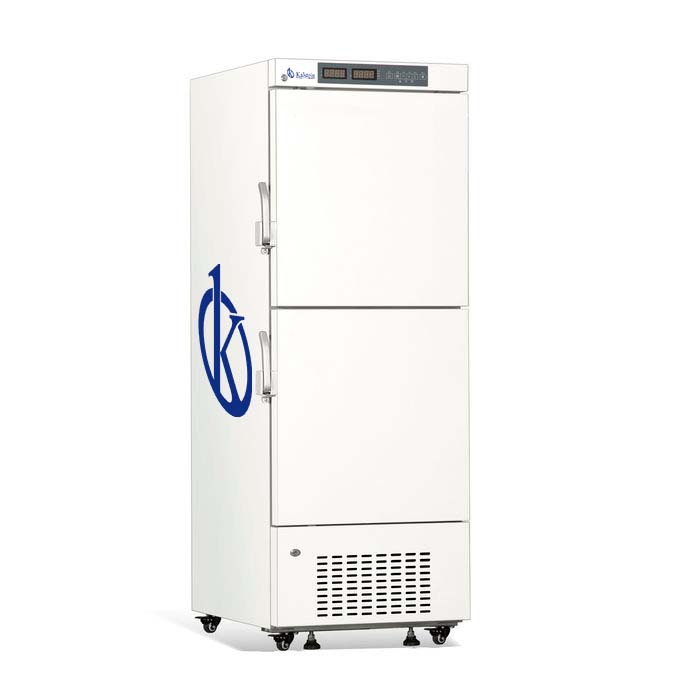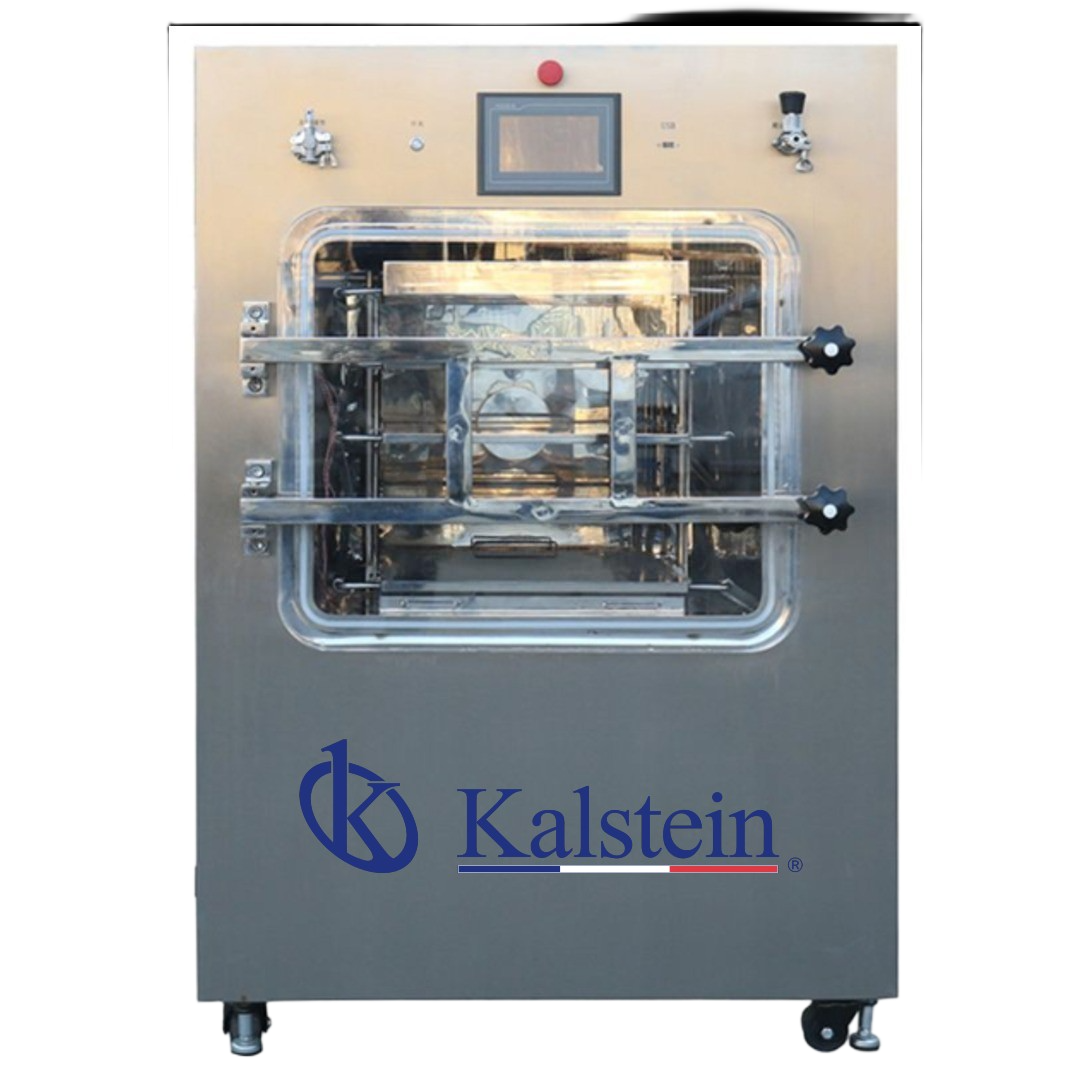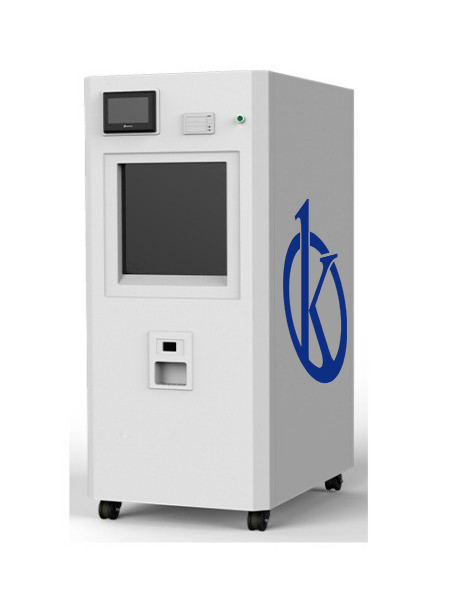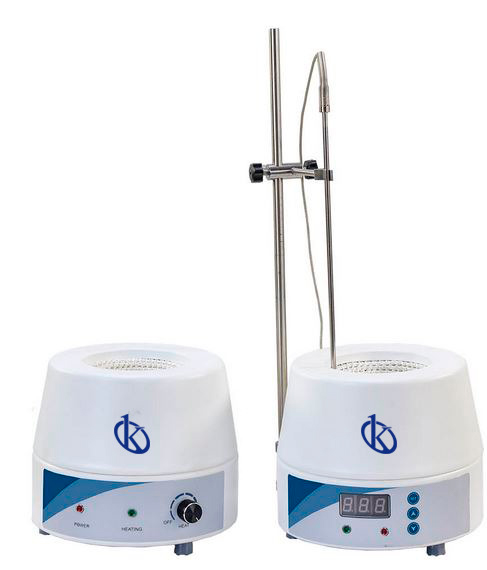Generally, the laboratory refrigerator, is made of resistant steel material and consists of an evaporator, storage cabinet located under the evaporator, where you can place shelves for storage, as well as the thermostat, which allows you to open and close an electrical circuit by action of a change of temperature, and the cooling system. The evaporator, located on top of the cold cabinet with sub-zero cooling functions, can reach temperatures of 5 to 30 °C.
It complies with the processes of conservation of samples and own substances for future studies, such as blood and derivatives, biological fluids and reactive tissues, chemical, biological and strains.
Laboratory Refrigerator Mechanism
The cooling system of the laboratory refrigerator is produced by a physical phenomenon of heat transfer, either by compression or by absorption. The compression cooler is used in spaces with permanent electrical energy, and the compressor of this system circulates a refrigerant medium in the refrigeration circuit. The absorption cooler is used when there is no electrical energy, so a source of heat, either a liquid fuel or a gas, is necessary.
The operation of laboratory refrigerators, in general, is very simple and is noted below:
- Electric ground pole attack suitable to the voltage and frequency requirements of the equipment. In general, refrigerators, depending on their capacity, can be obtained in versions that operate with 115 V, 60 Hz; 208/230 V, 60 Hz.
- Connect the refrigerator’s power cord to an electrical outlet from ground to ground to provide the required voltage and power.
- Run the power switch.
- Select the temperature.
- Ensure that the refrigerator reaches the desired temperature for storing substances or products.
- Manage space evenly within the refrigerator. The uniformity of the temperature depends on the free circulation of air inside the refrigerator.
- Avoid opening the door for long periods of time, to avoid the entry of thermal energy and moisture into the refrigerated environment, as ice is formed and the working time of the refrigeration system is increased.
Importance in the Use of the Laboratory Refrigerator
Basically, refrigerators are used for the preservation of blood and blood products. Chemical and biological activity is usually higher the higher the temperature. For this reason, by minimizing the temperature, it is possible to record the effect that the same has on the substances, whose structure is intended to be stored. In the laboratory, refrigeration systems are used for the conservation of substances such as reagents and biological elements, which must protect under ambient temperature conditions, will decompose or alter their properties.
Refrigeration, as a practice, provides the right environments to conserve those elements necessary for diagnosis, research and health service delivery.
Finally, extremely low temperature ranges, such as those used for the conservation of strains (-86°C) or temperatures ranging from 0 to 8°C, can be obtained, which are capable of storing substances and various biological products.
Laboratory refrigerators and freezers brand Kalstein
At Kalstein, we are manufacturers of the most extensive technology in laboratory equipment, capable of meeting all the demands of our customers. In this case, we offer you the Laboratory Refrigerators, belonging to the YR series, with general characteristics, and attractive, such as; Chemically stable, CFC-free, commercially available and environmentally safe Refrigerant. Control by microprocessor, adjustable temperature range: -20 °C to -40 °C. Digital LED display and raised to 0.1°C. Cooling fan permanently lubricated for safety and longevity. Wide voltage band for 187V-242V. Multiple malfunction alarms to detect high and low temperature, sensor error, power failure, temperature controller malfunction. Two types of alarm indications: audible hum and visual flashing light. HERE
In addition, we offer extensive advice, with the best experts, so that your purchase is the ideal and at excellent prices. To learn more about our catalog HERE




